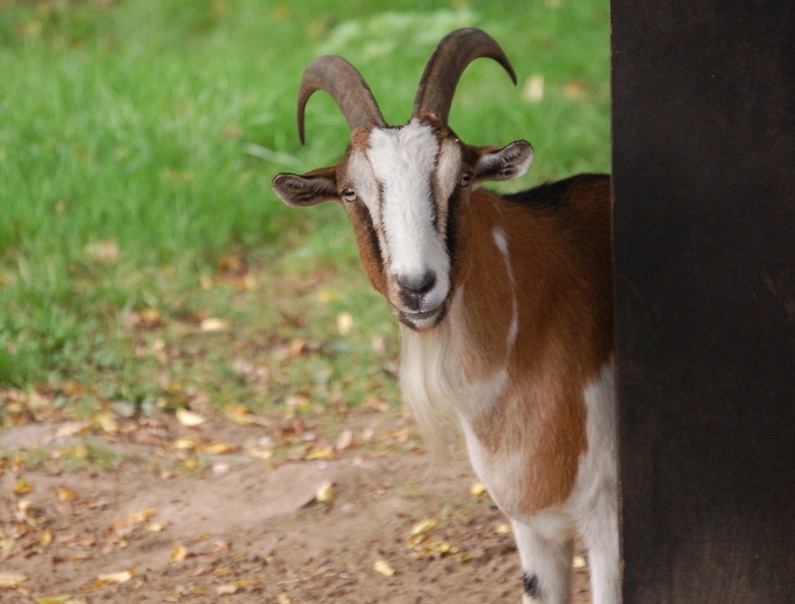Chew on This: Goats as Pets
Though goats are often associated with an agricultural lifestyle, these animals are being kept as pets more and more frequently. The owner of a pet goat benefits from companionship, the potential for milk production, land management by grazing, and more.
 Dr. Evelyn Mackay, a clinical assistant professor at the Texas A&M College of Veterinary Medicine & Biomedical Sciences, discusses the ins and outs of goat ownership that every potential owner should know.
Dr. Evelyn Mackay, a clinical assistant professor at the Texas A&M College of Veterinary Medicine & Biomedical Sciences, discusses the ins and outs of goat ownership that every potential owner should know.
“Goats are fun, social, and playful animals,” Mackay said. “They make great companions and are often very interactive and bonded to their owners.”
This social nature means that potential owners should commit to getting multiple animals, so their goat has a companion.
Although goats can be companions for other animals, such as racehorses, they are happiest when with another member of their species. However, owners of multiple goats must ensure that their goats are treating each other kindly.
“Goats have a social structure and sometimes dominant goats may bully and steal food from less dominant goats,” Mackay said. “This can cause problems in large groups if there are ‘disagreements’ between goats. Generally, they work out their issues and exist harmoniously, but groups of goats should be similarly sized, and goats with horns should not be housed with goats without horns.”
Potential owners living in suburban areas should consider adopting smaller breeds of goats, like Pygmy goats or Nigerian Dwarves, which can be kept in large yards.
Full-sized pet goats, such as dairy goats and Boer goats, need plenty of room for grazing and exercise; therefore, Mackay does not recommend those breeds for potential owners living in suburban environments. In addition, parasites can become an issue if goats are too crowded or housed in an area that is too small.
Ultimately, Mackay recommends consulting with a veterinarian to determine the best type of goat for your family and living situation.
Regardless of goat size and location, it is essential that their environment provides proper nutrition; an improper diet, including human food, treats, or excessive amounts of grain, can cause gastrointestinal issues and make goats very sick.
“Pet goats should always have access to some type of forage, like hay or grass,” Mackay said. “Their diet can be supplemented with a little bit of concentrate (grain or pellets), but the foundation of a healthy diet should always be high-quality hay or grass. They should only be fed grain formulated for goats, since grain for other species, like cattle and horses, can cause toxicities. If they want to feed treats, consider small amounts of fruit or vegetables, but avoid kale and broccoli, which can also be toxic.”
Like any animal, a goat requires annual vaccines and wellness exams with a veterinarian.
As outdoor pets, goats must also be protected from predators; Mackay says owners should ensure their pet goats are kept where they cannot be chased by dogs.
One final aspect potential owners should consider is that, as with any pet, a full-grown goat will be considerably larger than the baby they adopt.
“Everyone thinks baby goats are very cute,” Mackay said, “but people should be prepared for even the smallest breeds of goats to be a minimum of 60 pounds at maturity!”
Pet Talk is a service of the College of Veterinary Medicine & Biomedical Sciences, Texas A&M University. Stories can be viewed on the web at vetmed.tamu.edu/news/pet-talk. Suggestions for future topics may be directed to editor@cvm.tamu.edu.


